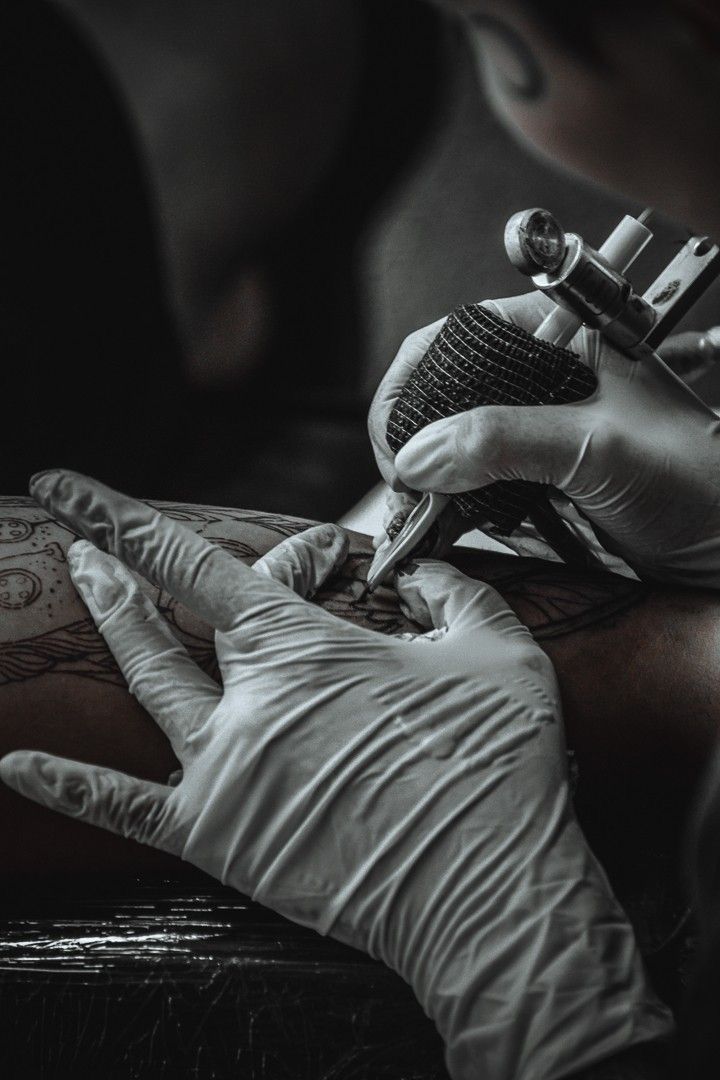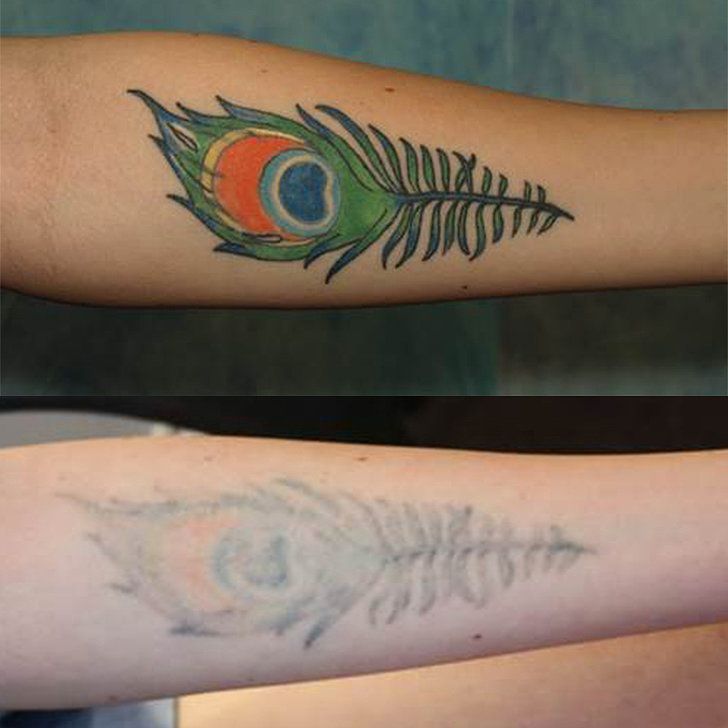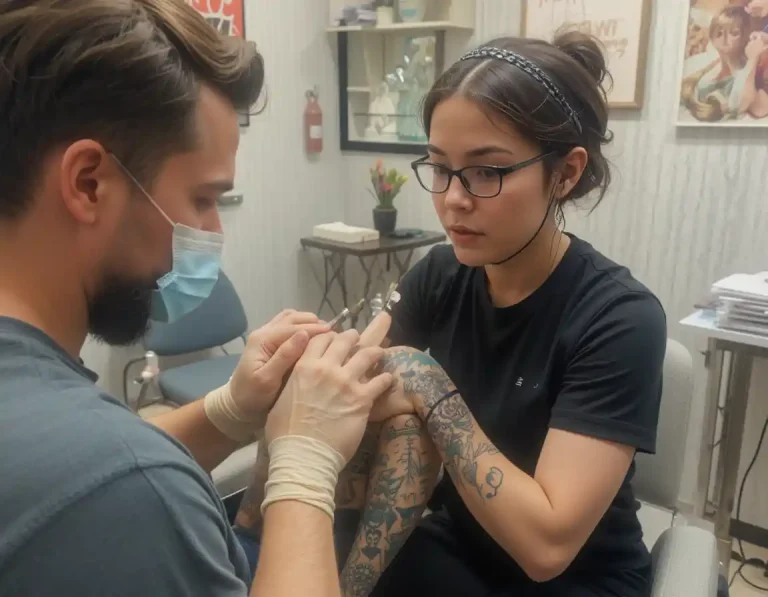Why Tattoos Are Not Allowed in Government Jobs: Myths & Facts Explained

Tattoos have become a popular form of self-expression in recent years. From celebrities to students, people across the world use tattoos to show their personality, beliefs, or memories. But when it comes to government jobs, many people worry: “Can I get a job in the government if I have a tattoo?” This article will help you understand the real rules, reasons, and myths behind tattoos and government jobs.
Understanding Tattoo Policies in the Government Sector
Tattoo Rules for Civil Services (IAS, IPS, IFS)
In India, civil services such as IAS, IPS, and IFS do not have strict tattoo bans. However, candidates must appear for a medical examination during the selection process. If the tattoo is offensive, overly visible, or affects health or fitness, it might raise concerns. A small tattoo that is not offensive and does not impact the person’s professional image is usually not a problem.
Tattoo Restrictions in Defense Forces (Army, Navy, Air Force)
The defense forces are strict about tattoos. The Indian Army, Navy, and Air Force have clear rules:
- Tattoos are allowed only on certain parts of the body (like the inner forearm)
- Tattoos must not be religiously offensive or show symbols of violence
- Tribals are allowed traditional tattoos as part of their culture
Visible tattoos in restricted areas (like the face, neck, or hands) can lead to disqualification.
Tattoo Norms in Police & Paramilitary Forces
Police departments and paramilitary forces like CRPF, BSF, CISF, and ITBP follow guidelines similar to the defense services. Tattoos should not be visible when wearing the uniform. If visible, they should not be offensive or disturbing. The medical board may reject candidates if tattoos are considered inappropriate or if they affect the skin.
Reasons Behind Tattoo Bans or Restrictions
Professionalism & Public Perception
Government jobs often involve interacting with the public. Officers are expected to look disciplined and professional. Visible tattoos may be seen as unprofessional in some government departments. Maintaining a clean appearance helps gain public trust.
Religious or Cultural Sensitivities
India is a country with diverse religions and cultures. A tattoo that seems normal to one person may offend someone else. To avoid controversy, the government prefers employees to avoid visible body art, especially with religious or political messages.
Security, Discipline, and Identity Concerns
Tattoos can make identification harder in some cases. In defense and police jobs, discipline is a priority. Tattoos might be seen as signs of rebellion or non-conformity. Some believe they can affect team unity and discipline.
Are All Tattoos Banned in Government Jobs?
Placement Matters (Visible vs. Non-visible Tattoos)
The location of the tattoo plays a major role. A small tattoo on the back or inner arm that is not visible in uniform is usually acceptable. Tattoos on the face, neck, or hands are more likely to cause issues during recruitment.
Content of the Tattoo (Religious, Offensive, Symbolic)
The meaning of the tattoo is also important. If the tattoo contains:
- Offensive symbols
- Hate speech
- Political slogans
- Religious imagery that may hurt sentiments
… it may lead to disqualification. On the other hand, a small heart or name of a loved one may not be a problem.
Tattoo Policies Around the World: A Comparison
US Government Job Tattoo Rules
In the U.S., many government agencies allow tattoos, but they should not be offensive. For example, the U.S. military has relaxed its tattoo policies in recent years. However, visible tattoos on the neck or face may still be restricted in certain roles.
UK and EU Government Guidelines
In the UK and EU countries, tattoos are generally accepted unless they promote hate or discrimination. Police and military organizations have some restrictions based on visibility and content.
How India Differs
India remains more conservative in this regard. Public image and cultural sensitivity are given higher importance. That’s why stricter rules are applied, especially in roles like defense, police, or civil services.
Common Myths About Tattoos and Government Jobs
“You can’t be an IAS officer if you have a tattoo”
False. There is no official rule banning tattoos in civil services. As long as the tattoo is not offensive or extreme, it should not affect your selection.
“All tattoos are banned in defense services”
Not true. The Indian Army allows tattoos in permitted areas (inner forearm, for example) and from recognized tribal communities. The tattoo must not contain offensive or objectionable content.
“Tattoos mean you are rebellious and unfit for government jobs”
This is a stereotype. Many qualified and disciplined individuals have tattoos. What matters is the nature and visibility of the tattoo, not personal choice.
What to Do If You Have a Tattoo and Want a Government Job
Medical Tests and Physical Examinations
Before final selection, many government jobs require a medical check-up. The panel checks your physical and mental health, including any visible tattoos. Be honest during the process and ask if the tattoo can affect your result.
Tattoo Removal or Cover-Up Options
If you are concerned about your tattoo, you can consider:
- Laser tattoo removal: Permanent option but may take multiple sessions
- Makeup cover-up: Temporary option to hide tattoos during interviews or exams
- Wearing full-sleeved clothing: Helps cover tattoos without removal
Choose what suits your career goals best.
Frequently Asked Questions (FAQs)
Q1: Can IAS aspirants have tattoos?
Yes, IAS aspirants can have tattoos. As long as the tattoo is not offensive or on a visible part like the face or neck, it should not affect your selection.
Q2: Are tattoos allowed in SSC, Railway, or Banking jobs?
Yes, most of these jobs do not disqualify candidates for tattoos. However, offensive tattoos may be questioned during document verification or medical exams.
Q3: Can soldiers or police officers have tattoos?
Yes, with restrictions. Tattoos must follow the department’s rules regarding size, location, and content.
Q4: Will I be disqualified if I have a tattoo on my hand?
It depends on the job. Defense and police services may not allow tattoos on the hands. Civil jobs are more flexible.
Q5: Should I remove my tattoo to get a government job?
Not always. It depends on the job role and tattoo. If it’s small and harmless, you may not need to remove it. If it’s large, visible, or controversial, removal may be a safer choice.
Conclusion
Having a tattoo does not automatically disqualify you from a government job. However, the rules vary depending on the type of job, tattoo placement, and its meaning. If you’re planning a career in civil services, defense, or police, it’s wise to understand the department’s tattoo policy beforehand.
Remember: professionalism, discipline, and public perception play a key role in government services. Make informed choices and take steps to ensure your tattoo doesn’t become a hurdle in your career path.





